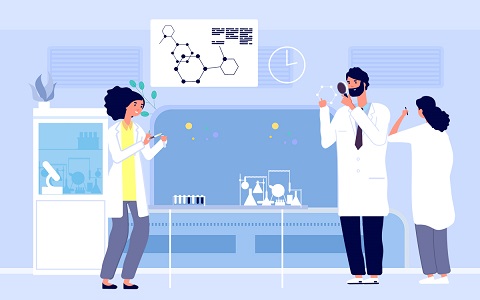BEIJING, May 26 (TiPost)— Chinese internet giant Baidu Inc. is set to make an overhaul as it gears up taking a big leap on artificial intelligence (AI).
 (相关资料图)
(相关资料图)
Source: Visual China
“There is a saying in the industry that each product is worth of reproduction as the era of big models comes, but who really redo (the product)? Baidu wants to be the first company to remake all the products, which means to re-work and reorganize, rather than to integrate into or open access to, ” stated Baidu CEO Robin Li, at a keynote address themed Big Models Change the World at the 2023 Zhongguancun Forum on Friday.
Citing the ChatGPT-like chatbot Ernie Bot, Li showed his company as a leader for launch of the offering powered by the large GPT, or generative pre-trained, model. “Such a quick release resulted from the long-term accumulation and investment,” Li said. “We have consistently updated the big model Ernie to 2.0 and 3.0 version since inception of its 1.0 version back to 2019, and we will soon roll out Ernie 3.5.”
Baidu officially launched Ernie Bot on March 16, a day after OpenAI released the multimodal pre-training large model GPT-4. The generative AI product enables to generate texts and integrate other capabilities of Baidu in the field of AI, such as the ability to create pictures, and the ability to automatically generate videos according to the copywriting, which can generate content with pictures.
At an earnings call last week, Robin Li said Baidu planned to steadily incorporate into all of its businesses, and was rapidly integrating Ernie Bot into all the businesses for testing. The efforts he mentioned include a beta-test for an upgraded version of Baidu Search, which is powered by Ernie Bot, and testing the integration of the bot with Baidu Wenku, an online document-sharing platform, to enable the bot to work alongside users and assist with searching, summarizing, and generating content using natural language.
The financial report last week disclosed Baidu made a milestone for the AI-empowered cloud business. Baidu AI Cloud earned RMB4.2 billion with an 8% YoY increase, and first achieved profitability on a non-GAAP operating level. Robin Li attributed the first profitability to phasing out low quality projects and developing standardized AI solutions for key user cases.
At Friday’s keynote, Li forecasted a disruptive future as foundation models have condensed human understing of the whole world, showing us the path toward achieving AI. He lists three future trends that big models will create: the first, to redefine human-machine interaction; the second, to redefine the marketing and customer service; and the third, to give birth to native AI applications.
As to the first trend, Li further clarified that interaction between human and AI through natural language will bring about a prompt revolution. He made a prediction about future jobs. “50% of jobs in the world will be prompt engineering in the future decade. Asking questions is more important than solving them. Our education should teach children how to ask questions, not just to address them,” according to Li.
Li also expected AI to deeply integrate into the real economy, empowering thousands of industries and sectors, thus help China develop another thirty-year golden age.
Li echoed his upbeat attitude to AI adoption. At the 7th World Intelligence Congress last week, he remarked history has proven that every technological revolution has made some jobs disappear while creating more new job opportunities. Taking the automobile as an instance, the tech tycoon noted although cars replaced horse-carriage drivers, the auto industry has generated billions of jobs today, and 30 million people now work in the industry in China alone. “The biggest danger for humanity is not the uncertainty brought about by innovation. On the contrary, the various unpredictable risks brought about by following inertia, not inventing, not creating, and not making progress are the greatest threat to humanity,” Li warned.








































































